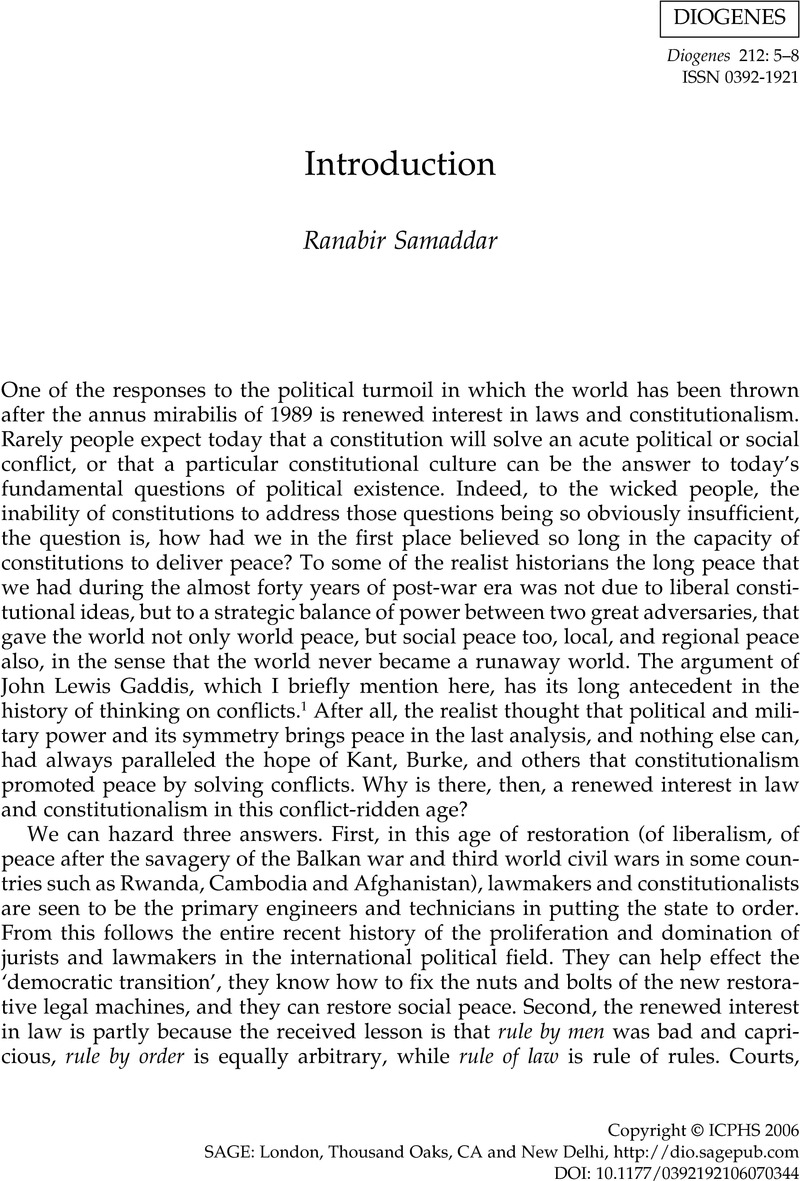No CrossRef data available.
Article contents
Introduction
Published online by Cambridge University Press: 28 February 2024
Abstract

- Type
- Introduction
- Information
- Copyright
- Copyright © ICPHS 2006
References
Notes
1. John Lewis Gaddis (1987) The Long Peace - Inquiries into the History of the Cold War. New York: Oxford University Press.
2. Edmund Burke (1975). Cited in Alexander M. Bickel, The Morality of Consent, pp. 15-16. Yale: Yale University Press.
3. The principal jurist among the fathers of the Indian constitution, B. R. Ambedkar repeatedly emphasized what can be called the juridical common sense in defending draft articles of the Indian constitution and opposing certain major amendments moved against those draft articles; see for example, his speech to the Constituent Assembly on Article 61.




